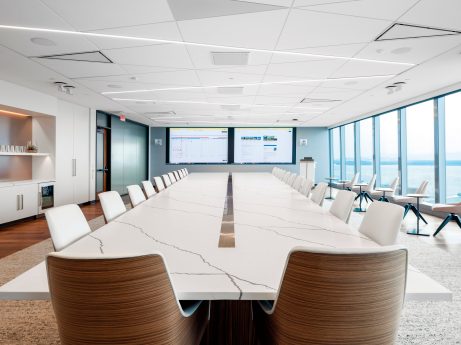
According to the U.S. EPA, almost 90% of our time is spent indoors, emphasizing the importance of the materials that surround us. Acoustical design can enhance or diminish the experience of any space. This course will walk through the importance of designing and installing appropriate acoustical treatments, which may be about more than absorption; for example, spaces in healthcare, education, and office rely on sound blocking for speech privacy and clear communication. Participants will learn how acoustical ceiling and wall solutions can contribute to improved Indoor Environmental Quality (IEQ) and meet today’s most stringent sustainability requirements.
Health, Safety and Welfare (HSW) Justification:
The course highlights the impact of suboptimal IEQ on productivity, health, and satisfaction. It delves into the nuanced effects of sound on human well-being, stressing the importance of proper acoustics and noise control.
Recognized Associations
AIA|HSW, ASID, IDS, IDC, IDCEC|HSW, IIDA & State Licensing Boards
This course is available to take on demand, here
Related CEUs

Have you heard a great building lately? Explore the many options that help architects determine acoustical design for today's buildings.

Learn about selecting and specifying wood ceilings & walls including aesthetic, functional and sustainable design benefits and challenges.

Specify materials that control reverberation, background noise, and sound isolation in learning spaces.